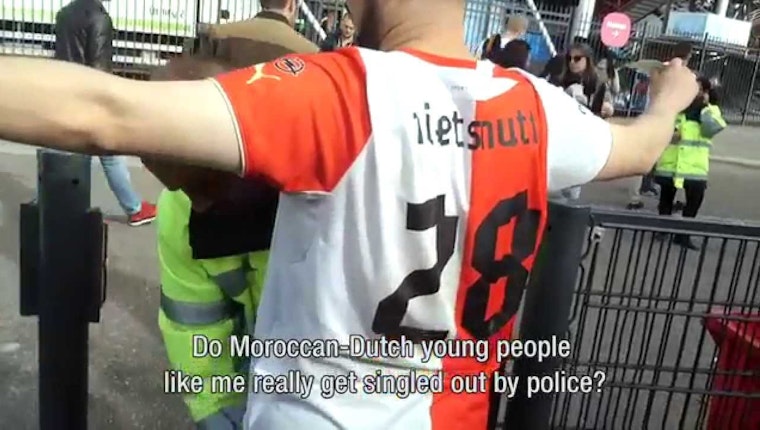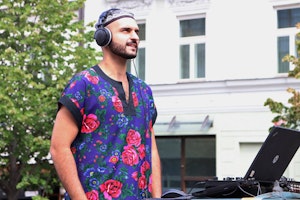Pushing Back Against Ethnic Profiling in the Netherlands
By Jair Schalkwijk

Ethnic minorities in the Netherlands are more likely to be stopped by the police [PDF]—a practice that some Dutch citizens view as good law enforcement because of an overrepresentation of minorities in crime statistics.
But policing that’s based on how people look instead of how they behave is not only racist and unlawful, it’s ineffective. It reduces trust in the police, which is necessary for effective policing. When the police constantly stop innocent people, it negatively affects the relationship between law enforcement and ethnic minorities.
With the help of Mohammed Anouar, a Dutch activist of Moroccan origin, my organization, Blikopeners, produced a documentary that examines this dynamic. With Mohammed Onderzoekt Etnisch Profileren (Mohammed Investigates Racial Profiling), we wanted to show how ethnic profiling can be detrimental to the cohesion of open societies, and mobilize young people in the Netherlands to advocate against ethnic profiling and promote effective and honest policing.
With our first movie back in 2013, Politie Discriminatie in Nederland (Police Discrimination in the Netherlands), we aimed to insert the issue into the public debate. Through countrywide events and screenings as part of our campaign Controle Alt Delete [Dutch site], Blikopeners collaborated with other civil society actors to advocate against ethnic profiling.
In 2014, during one of our events, the police promised to improve the procedure and transparency of its complaint system. This small win encouraged us to carry on. With this latest film, we hope to contribute to the effort to ban ethnic profiling once and for all. The Netherlands deserves policing that doesn’t discriminate.
Mohammed Onderzoekt Etnisch Profileren was produced with support from the Open Society Foundations.
Jair Schalkwijk is a founder of Controle Alt Delete.


